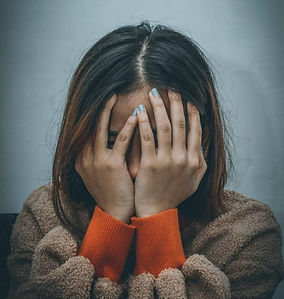"Depression is not the enemy—it’s the messenger, carrying the weight of wounds we’ve yet to name."
Psychiatry for Depression Can Improve:
-
Mood stability and emotional regulation
-
Sleep patterns and energy levels
-
Ability to focus and concentrate
-
Motivation and interest in daily activities
-
Overall quality of life and functioning
-
Management of intrusive or negative thoughts
-
Coping skills for stress and emotional challenges
-
Safety and prevention of worsening symptoms
-
Hope, confidence, and a sense of control
-
Support through medication and personalized care

Do I really need medication, or can I feel better without it? It’s a common concern, and the goal of psychiatric medication is not to change who you are—but to help lift the weight of depression so you can reconnect with yourself. Most people describe feeling more like themselves again as their symptoms improve. If something doesn’t feel right, we’ll work together to adjust your treatment so it supports—not suppresses—your emotional well-being.
Will I feel like myself on medication, or will it change who I am? The goal of medication is not to change who you are, but to reduce the symptoms of depression that may be clouding your sense of self. Many people find that as their mood improves, they feel more like themselves—not less. If you ever feel “off” or unlike yourself, your provider will work with you to adjust the treatment to better support your well-being.
How long will I need treatment, and what should I expect during the process? The length of treatment varies from person to person—it depends on your unique needs, symptoms, and how you respond to care. Some people begin to feel better within a few weeks, while others may benefit from longer-term support. In the beginning, we’ll focus on understanding your experiences and developing a treatment plan that feels right for you. This may include medication, therapy, or both. We’ll check in regularly to monitor your progress, adjust your treatment if needed, and make sure you're feeling supported every step of the way. The goal isn’t just to reduce symptoms, but to help you build a more stable, fulfilling life over time.
A Reflection of a Deeper Problem
Persistent Sadness or Low Mood
This isn’t just feeling down once in a while—it's a deep, lingering sense of sadness, emptiness, or hopelessness that lasts most of the day, nearly every day.
For some, this shows up as tearfulness, emotional numbness, or a general sense that something is “off” emotionally.

Loss of Interest or Pleasure
Things that used to bring joy—like hobbies, socializing, or even eating your favorite food—may no longer feel rewarding. This loss of interest can affect work, relationships, and daily motivation, making life feel flat or unfulfilling.

Changes in Sleep Patterns
Depression often disrupts sleep in two major ways: insomnia (difficulty falling or staying asleep) or hypersomnia (sleeping much more than usual but still feeling exhausted).

Fatigue or Low Energy
A deep, persistent exhaustion that isn’t improved by rest is common in depression. Everyday tasks like getting out of bed, taking a shower, or preparing meals can feel overwhelming. This kind of fatigue goes beyond feeling “tired”—it’s a whole-body heaviness that can make it difficult to function or stay engaged.


